Adam's Heart Valve Surgery Blog – Page 75
Beyond The David Procedure For… David
By Adam Pick on June 15, 2008
After two heart surgeries in six days (yes, you read that right), David Barnes has quite the tale to tell. That said, I thought you might like to hear more about this inspirational and educational patient success story.
Dear Adam,
I had my heart surgery on March 25, 2008 at Methodist Hospital in Indianapolis, Indiana. My surgeon, Dr. Fehrenbacher, replaced a dilated ascending aorta (5.3cm) and repaired an old descending aorta coarctation repair from 1972. I also had the David Procedure – aortic root replacement without replacement of the aortic valve.
On March 31st, just six days later, I required a second surgery (a Ross Procedure with a synergraft pulmonary valve from Cryolife), because the David Procedure failed.
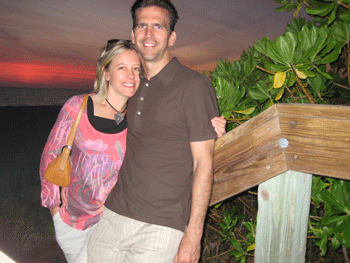
Naples, Florida After Two Heart Surgeries
Would You Recommend Your Heart Surgeon?
By Adam Pick on June 13, 2008
Earlier today, I was at Borders reading a fascinating book called “The Ultimate Question” by Fred Reichheld. The book claims that YOUR customer satisfaction is best measured by one simple question, “Would you recommend this product or service to a friend?”
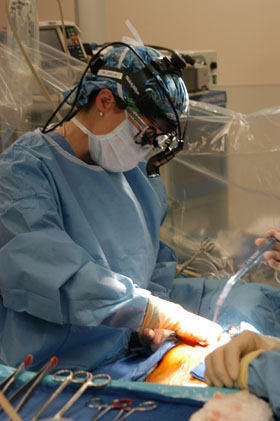
When I stopped to think about it, I was amazed at all the different product and service recommendations I made during the last 24 hours. The list included everything from one-cup coffee machines (Keurig) to 7-inch digital photo frames (Philips) to attorneys (Valle Associates) to gardening centers (Lowes) to…. yes… you guessed it… HEART SURGEONS.
Robin Shares About Aortic Stenosis And Cancer (Hodgkin’s Lymphoma)
By Adam Pick on June 11, 2008
There never seems to be a shortage of inspirational emails waiting for me in my inbox.
Recently, I exchanged emails with Robin, a fellow patient recently diagnosed with aortic stenosis. As you can read, this is the second major health issue for Robin. Several years ago Robin fought cancer (Hodgkin’s lymphoma).

In her note to me, Robin mentioned something that I had never heard before – the negative impact of radiation on heart valve function. Specifically, Robin noted that her medical team believes that her stenotic valve was caused by radiation treatments used to fight the cancer.
Insulin Treatments For Heart Surgery Patients?
By Adam Pick on June 11, 2008
It really is amazing to read and learn about all the new studies and research about heart surgery and heart valve disease.
You may have read my recent posts about minimally invasive aortic valve replacement, the use of statins to reduce complications post-operation, blood transfusion concerns or treating stenotic aortic valves with HDL-increasing drugs.
Well… Here’s another interesting study just released from the University of Michigan Health System.

According to Michigan researchers, nearly half of all heart surgery patients may experience blood sugar levels high enough to require temporary insulin treatment after their operation, even though they’ve never had diabetes. And a significant minority of those patients might need to take medicines for days or even weeks after they leave the hospital.
To read more about Michigan’s research, please click here.
Keep on tickin!
Adam
Remember… Avoid Jacuzzis And Hot Saunas During Early Recovery
Written By: Adam Pick, Patient Advocate, Author & Website Founder
Medical Expert: Wen-Chih Wu, MD
Page Last Updated: May 13, 2025
I don’t know about you…
But, as I went through the heart valve surgery process, I learned ALOT of interesting information about the heart – specifically, its anatomy and function.
I also learned there was a laundry list of “Do’s and Dont’s” specific to the recovery. In past posts, I’ve written about many of these recovery suggestions which include everything from not drinking coffee after surgery to using your incentive spirometer after heart surgery.

FYI, here is another little fact to remember during your recovery from heart valve repair or heart valve replacement surgery.
Do not spend time in a jacuzzi, wet sauna, dry sauna or extremely hot shower immediately after cardiac surgery. High temperatures force the heart to work harder to circulate blood throughout the body.
As The Practical Guide For Heart Health states, “Avoid working and exercising in extremely hot temperatures during your early recovery from heart surgery.”
And, more generally, Dr. Wen-Chih Wu at Brown Health, suggests that while the use of a sauna is considered safe for most individuals, the exception is for those with unstable heart disease. For individuals with any of the following conditions, saunas may not be safe:
- unstable angina pectoris
- recent heart attack (within two weeks)
- uncontrolled hypertension
- decompensated heart failure
- severe aortic stenosis
In addition to unstable heart disease, a sauna can be a health threat to individuals with the following conditions:
- low blood pressure
- dehydration
- fever
- acute infection or inflammation
- skin breakdown (urticaria)
I hope that encourages you to be very cautious about the use of a sauna in your early recovery and consult your medical team for additional considerations.
Related Links:
- What About Coffee and Caffeine After Heart Surgery?
- Sex After Heart Surgery: Patient Information
- How Long Should I Wait Before Driving After Heart Surgery?
Keep on tickin!
Adam
“How To Tell Your Kids About Heart Surgery?” Asks Jerry
By Adam Pick on June 7, 2008
Every so often I receive a fantastic question that is impossible for me to answer.
For example, today I received a question from Jerry. He writes, “Adam: Thank you for your book. I am curious if you have any advice on how to speak to my kids about my upcoming heart valve surgery. I don’t want to scare them. However, I do want to give them some understanding of what might happen. If you have any advice, I would appreciate it.”

The reason I can’t answer this question is because I have no kids and therefore no personal experience to share. That said, I am hopeful that YOU might be able to help Jerry with this issue.
Do you have any thoughts or ideas for Jerry? If so, please ‘Leave A Reply’ below!!
In advance and on behalf of Jerry, thanks so much!!!
Keep on tickin!
Adam
Heart Surgery Pioneer – Vivien Thomas (Johns Hopkins)
By Adam Pick on June 7, 2008
The story of Vivien Thomas is extraordinary.
In fact, as Robyn (my wife) and I watched the HBO special on his life, we both found ourselves in tears.
The television movie is called “Something The Lord Made” and it premiered in May, 2004.
During his lifetime, Vivien Thomas faced prejudice, bigotry, wage discrimination and humiliation in the process of changing cardiac surgery forever. That said, after the replacement of my diseased aortic valve and pulmonary valve, I am DEEPLY INDEBTED to this man and his innovative colleague Dr. Blalock.
Here is Vivien Thomas’ Biography On Wikipedia.
If you have any interest in learning about one of the pioneers of heart surgery, I highly encourage you to watch or rent this movie.
Keep on tickin!
Adam
Statins Prevent Death And Complications In Heart Surgery Patients, Says New Study
By Adam Pick on May 30, 2008
As for new advancements in heart surgery… Here is a recently released study regarding statin-use before heart surgery. The good news? It appears promising.
Medical News Today reported that people given cholesterol-fighting statin drugs before heart surgery are far less likely to die or suffer complications afterwards, German researchers said on Wednesday. The analysis of more than 31,000 patients provides some of the strongest evidence yet of the benefits of statins before heart surgery but it also found that too few doctors are prescribing them, they said in the European Heart Journal.
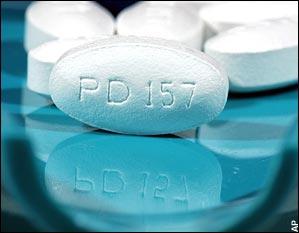
Does Grey’s Anatomy Miss Mark On Heart Surgery Reality?
By Adam Pick on May 30, 2008
Don’t get me wrong.
I really enjoy the television show Grey’s Anatomy (Thursdays, 9pm on ABC).
My wife (Robyn) really loves it. So, we always watch the weekly trials and tribulations of Meredith Grey, McDreamy, McSteamy, George, the Chief, Yang, Izzy and, lately, Dr. Erica Hahn – the head of cardiothoracic surgery at Seattle Grace.
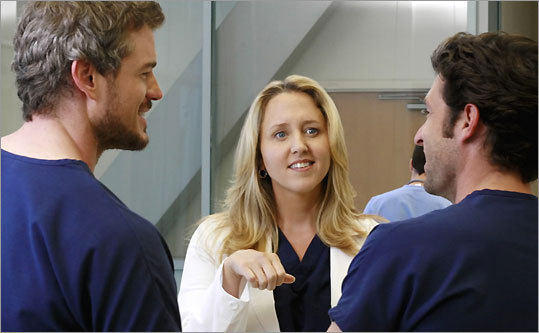
That said, the title of this blog may be a little harsh for ABC’s hit series.
But, as a former open heart surgery patient, I’m getting a tad uncomfortable of the dramatic style by which Grey’s Anatomy depicts life in a heart surgery ward.
- Last week, the show depicted a three-way sexual innuendo among the operating physicians during cardiac surgery.
- A few weeks before that, a patient showed little-to-no signs of physical trauma following heart valve surgery.
- Recently, Dr. Hahn (played by Brooke Smith) failed to inspire and encourage her talented resident (Yang) to participate in a cardiac procedure.
I know. I know.
Maybe I’m a little sensitive.
It is a television show designed to win fans, ratings and ultimately advertisers.
I guess I just want future patients and caregivers to know what life is really like in a hospital. Especially, considering that Grey’s Anatomy’s viewers may be scheduled for surgery the next day, the next week or the next month. For that reason, I wish the writers and producers of the show would enhance their portrayal of hospital life for heart surgery patients.
Do you watch the show? What do you think?
Keep on tickin!
Adam
First Mechanical Heart Valve Keeps Tickin’ 38 Years Later
Written By: Adam Pick, Patient Advocate, Author & Website Founder
Page Last Updated: June 5, 2025
As I wrote earlier about the first mechanical heart valves, doctors could do little to help people with failing heart valves until 1960, when Portland heart surgeon Dr. Albert Starr and engineer Lowell Edwards introduced their mechanical heart valve. Here is a picture of a replica of the first ball-in-cage heart valve replacement that was given to me by Edwards Lifesciences.
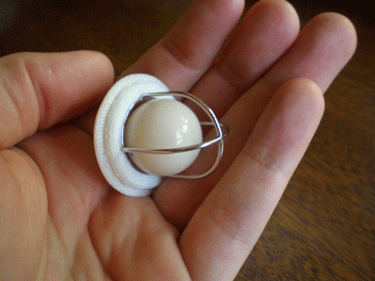
One of the key questions patients ask me is, “How long did the early mechanical heart valves last?”
Washington Senator, Dan Swecker, To Undergo Heart Valve Replacement Surgery
By Adam Pick on May 30, 2008
The vice chairman of the state Senate minority caucus, Republican Dan Swecker of Rochester, is in the hospital with a heart problem. Swecker’s staff say he was taken to Providence St. Peter Hospital in Olympia, Washington by ambulance after what seemed to be a heart attack Saturday night.

According to a news release Tuesday, tests show Swecker has a congenital heart valve abnormality (potentially a bicuspid heart valve). An operation to fix the problem is planned for this week. According to the news release, Dan Swecker is in critical care but stable condition.
Swecker joins a long list of public personalities to have heart valve surgery including Arnold Schwarzenegger, Jim Lehrer, Jessie Helms, Charlie Rose and Rodney Dangerfield.
All the best for a speedy recovery Senator Swecker!
Keep on tickin!
Adam
Ali’s 12 Night Hospital Stay With Her Mom, After Aortic Valve Replacment Surgery
By Adam Pick on May 22, 2008
I first met Ali, from Northern California, a few months ago. Her mother had been diagnosed with severe aortic stenosis and needed heart valve replacement. To learn more about narrowed heart valves, click here.
I could tell right-away that Ali was going to be a phenomenal caregiver through this experience. Ali and I spoke on the phone for thirty minutes about her mom, her health and the next steps for aortic heart valve replacement. One of the big questions for Ali’s mother was, “Should I go to Cleveland Clinic? Or, should I have the surgery done locally by Dr. Gaudiani?”
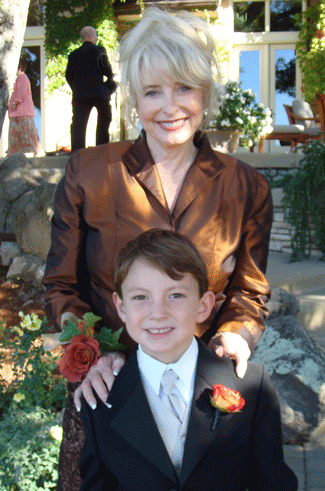
Ali’s Mom and Ali’s Son
Last week, I received an update from Ali. I thought you might like to read this email to get a very unique glimpse into the caregiver’s perception of heart valve surgery.
How Much Annual Heart Valve Surgery In The United States?
By Adam Pick on May 22, 2008
Tammy, from Florida, just wrote me a curious question that reads, “Hi Adam – You note that there are about 250,000 heart valve surgeries performed around the world each year. By chance, do you know how many heart valve surgeries are performed in the United States each year?”
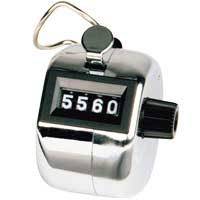
Pain, Driving And Nicole’s Triple Heart Valve Surgery
By Adam Pick on May 22, 2008
This just came in from Nicole after a very, very, very, very complex heart valve surgery.
Adam,
My husband, Jason, and I recently purchased your book to get a new perspective on our experience. I am five weeks post mitral valve repair, tricuspid valve repair, pulmonary valve replacement and a “maze-type” procedure. Unfortunately, my surgery was complicated by the need for a pacemaker approximately 3 weeks ago. This was not my heart first surgery as I had an atrial septal repair some 25 years prior (I am 28 years old now).
In reading your book, I had some additional questions that maybe you could answer:
1) How long were you actually in pain for? I know you mentioned that 7 weeks out you were still taking vicodin and then you started the cardio rehab. After 5 weeks, I still take 3 Percocets a day and still am in pain.
2) When were you able to resume driving? My doctors had originally told me 6 weeks but I am still in a lot of pain when I turn my head so I couldn’t imagine being able to manipulate a car in any sort of a safe manner.
Stents In Tissue Heart Valve Replacements?
Written By: Adam Pick, Patient Advocate, Author & Website Founder
Page Last Updated: June 8, 2025
Ever wonder why a stent is used in many forms of biological heart valve replacements?
I just received a question from Keith that reads, “I will be going in for heart valve replacement next month. I have opted for a tissue valve replacement. My surgeon referenced a pig valve replacement with a stent. What does this mean?”
Good question Keith! A stent is used to support a replacement heart valve when positioned in the heart. Specifically, a stented tissue valve includes a frame (the stent) on which the valve is mounted. Ultimately, the stent supports the leaflet tissue (e.g. mitral valve leaflets) that opens-and-closes as blood flows through the heart.
In many valves, the stent is covered by a fabric ring, known as the sewing ring. The surgeon implants the valve by suturing the sewing ring into the patient’s heart.
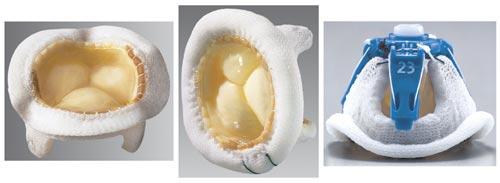
Above you can see an example of the Medtronic Hancock® II heart valve replacement device which uses a stent.
Alternatively, a stentless valve is often an actual heart valve taken from either a human donor (homograft) or a pig. The Medtronic Freestyle® aortic root bioprosthesis is a stentless valve consisting of the porcine aortic valve and a portion of the pig’s aortic root. This valve contains the “natural” leaflets found in the animal’s original heart valve. A stentless valve is sewn directly into the heart to take the place of the patient’s valve.
I hope this helps explain a little more about stents in heart valve replacements.
Related Links:
- Pig Valve Replacements: 10 Important Facts to Know
- Cow Valve Replacements: What Should Patients Know?
- Ross Procedure: A Durable Aortic Alternative to Tissue Valves?
Keep on tickin!
Adam
Blood Transfusion & Blood Bank Concern for Heart Surgery Patients
Written By: Adam Pick, Patient Advocate, Author & Website Founder
Medical Expert: Edward Soltesz, MD, Cleveland Clinic
Page Last Updated: July 15, 2025
In the past, we have discussed blood bank safety and concerns about blood transfusions during heart surgery.
The Epoch Times recently reported, “Mounting evidence that routinely giving blood transfusions to patients could actually increase their risk of death or other heart surgery complications has prompted calls for medical staff to be more cautious about who they administer transfusions to.”
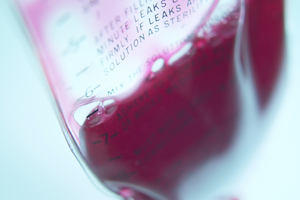
The U.K. study of almost 9,000 heart surgery patients supports this finding, and indicates a six-fold increase in the risk of death after 30 days with a three-fold increase in the risk within one year following surgery. Transfusions were also associated with more infections and higher incidences of stroke, heart attack, and kidney failure. These complications were usually linked to a lack of oxygen to body tissues.
This is important for patients and caregivers to consider because patients typically have the option of donating their own blood (in advance of the operation) or using the hospital blood bank if a transfusion is required during your surgery.
That said, I found this information very interesting and was interested to learn more. For that reason, I connected with Dr. Edward Soltesz, a leading cardiac surgeon at the Cleveland Clinic. Here are the highlights of my interview with Dr. Soltesz about blood transfusions:
Here are several additional links to help you learn more about blood bank safety and actual patient stories about blood transfusions.
Related Links:
- Julie’s Blood Bank Concerns, Remorse & Advice
- Lisa’s Mitral Valve Repair and Blood Transfusion
- Blood Bank Safety: Important Patient Information
Keep on tickin!
Adam
After Keyhole Heart Valve Surgery By Dr. William Ryan, John Is Home!
By Adam Pick on May 13, 2008
After four opinions regarding his defective mitral valve, John finally had minimally invasive mitral valve repair at the skilled hands of Doctor William Ryan in Texas. Here is John’s latest update:
Dear Adam,
I have contacted you a couple of times about heart valve surgery. I first ordered and read your book – that helped me a lot.
Before that, I had been urged by four doctors to have my mitral valve repaired because of severe mitral valve regurgitation. I finally relented but wanted it to be done by the right surgeon and the right hospital. I live in Tulsa, Oklahoma and wanted minimally invasive surgery that I could not get in Oklahoma.
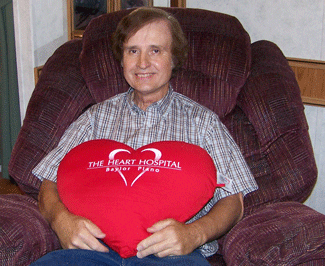
I found Dr. William H. Ryan at The Heart Hospital At Plano Texas and asked you if you had heard of him. You replied that you had heard of a few people (including Doug Atkins and Melissa Causey) receiving heart valve surgery from him all with good results.
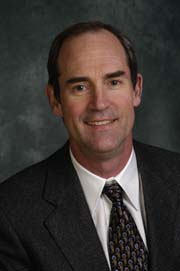
Dr. Ryan operated on me with the a keyhole surgery on April 29, 2008. I stayed in the hospital for four days. I am now at home recovering. I can not praise Dr. William Ryan enough. The Heart Hospital At Plano is the best. If anyone needs info about Dr. Ryan, please give them my e-mail, I will be happy to provide information. Thank you Adam.
John
How Do Patients Change — Physically & Mentally — After Open Heart Surgery?
By Adam Pick on May 13, 2008
I just received an interesting question from Mia. Her email reads, “How I am going to change after open heart surgery?”
As we all know, emotions of fear can accompany the unknown. Ultimately, I think it is the unknown of heart surgery that stimulates thoughts like, “How will I be different after my operation?”, “Will my physical abilities change after heart surgery?” and “Will I experience mental changes after bypass- like pumphead?”
That said, I have to be honest with you and every other person who reads this blog. In my opinion, there is no single response that encapsulates the potential changes that patients face as they experience open heart surgery.
After my experiences with aortic valve replacement procedures, I will be the first to share with you that the recovery can be difficult – full of daily changes, weekly changes and monthly changes. However, there are many patients, that experience no relative, long-term changes after open heart surgery.
Continue reading this post »
Before & After: Mitral Valve Repair Surgery Pictures
By Adam Pick on May 13, 2008
This deserves a “Wow!”
I could ramble on about how neat this is… Instead, I’ll simply let Geoff explain. Here is Geoff’s email:
Hi Adam,
I am home from my surgery!!
The mitral valve repair was performed last Tuesday morning. I left Duke Medical Center, five days later, on Saturday morning at 9:45 am!
I am fairly weak and somewhat sore. But, overall I am doing great. I spent the first night after heart surgery in the intensive care unit (ICU). The breathing tube and TEE were removed in the first few hours after surgery. I had tubes coming out of me from many places – an IV in my neck, left arm artery, left arm near elbow and right arm.
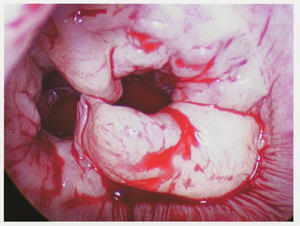
I can’t say enough good things about the staff at Duke Medical Center. My surgeon, Doctor Donald Glower, was able to repair the valve so that there was 0% mitral regurgitation. If you are interested, I have attached the before and after pics. (To learn more about mitral regurgitation, click here.)
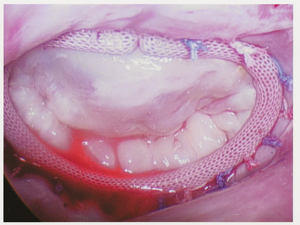
Thank you for your heart valve book, and all the blog members, for their stories and insight. Heart surgery truly is an emotional journey. My fiancee, Lisa, and I are very happy to be through it.
Thanks… Geoff
Remember, No Coffee After Heart Surgery!
Written By: Adam Pick, Patient Advocate, Author & Website Founder
Page Last Updated: July 8, 2025
For all the Starbucks fans out there needing heart valve surgery, I have some difficult news to share with you.
Brace yourself… Here it is… Coffee is not recommended right after any form of cardiac surgery, including heart valve surgery.

Yes, I know. That’s a tough one. I can personally relate to what you might be going through right now. I remember thinking, “WHAT? NO COFFEE!”, as I was discharged from USC Medical Center after my aortic valve surgery. (Actually, it wasn’t that dramatic.)
Like so many of you, I typically start everyday with some form of hot caffeine drink – coffee or chai tea. (Did you know 90% of adults in North America drink at least one caffeine-enhanced drink every day? And, did you know that caffeine was discovered by a German chemist in 1819?)
Generally, doctors recommend avoiding or limiting caffeine, including coffee, after heart surgery, particularly in the initial stages of recovery. This is because caffeine can increase heart rate and blood pressure, which can be detrimental to someone recovering from surgery.
In the initial stages of recovery (often 4-6 weeks after surgery), it’s generally advised to avoid or limit caffeine. However, some doctors may allow a small amount of coffee after a few weeks, especially if the patient is tolerating it well. Fyi, even decaf coffee can have some caffeine and may still be a concern for some individuals, according to Kaiser Permanente.
Don’t worry though… It’s not permanent. My cardiologist gave me the green-light to start drinking coffee a few weeks after my aortic valve replacement.
Related Links:
- Sex After Heart Surgery: Patient Information
- Jacuzzi and Sauna Use After Heart Surgery
- 6 Tips to Prepare You for Heart Surgery Recovery
Keep on tickin!
Adam





